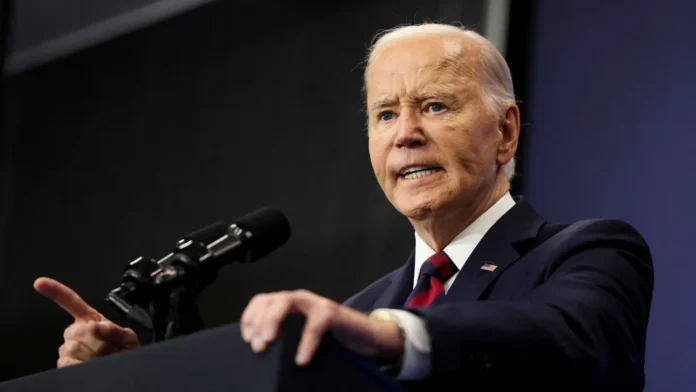President Biden vetoed a bill on Monday that would have added 66 federal district judgeships over more than a decade, ending a once-bipartisan attempt to ensure that neither political party had an advantage in shaping the federal judiciary.
According to the law, three presidential administrations, beginning with the incoming Trump administration, and six Congresses would have had the opportunity to select new trial court judgeships, with backing from organizations representing judges and attorneys.
Despite the organizations’ arguments that more judgeships will help with cases that have had significant delays in settlement and alleviate concerns about access to justice, the White House said that Biden would veto the legislation.
In a statement, Biden said he reached his choice because the House of Representatives’ “hurried action” raised concerns about “life-tenured” positions.
“The House of Representative’s hurried action fails to resolve key questions in the legislation, especially regarding how the new judgeships are allocated, and neither the House of Representatives nor the Senate explored fully how the work of senior status judges and magistrate judges affects the need for new judgeships,” according to Biden.
“The efficient and effective administration of justice requires that these questions about need and allocation be further studied and answered before we create permanent judgeships for life-tenured judges,” the vice president said.
He stated that the plan would have also generated new judgeships in areas where senators have not filled existing judicial vacancies, implying that “concerns about judicial economy and caseload are not the true motivating force behind passage of this bill now.”
When Biden’s decision to veto the legislation became public earlier this month, Sen. John Kennedy, R-La., told “America’s Newsroom” that the act is “the last spasm of a lame-duck.”
“President Biden and his team don’t want to allow it to become law simply because a Republican administration would get to appoint some of the judges,” the senator stated.
“I wish they’d put the country first,” the senator continued.
The law was overwhelmingly passed by the Democratic-controlled Senate in August, but the Republican-led House brought it to the floor until after Donald Trump was reelected president in November, generating an aura of political gamesmanship.
Overturning Biden’s veto would have required a two-thirds majority in both the House and the Senate, and the House vote fell far short of that threshold.
